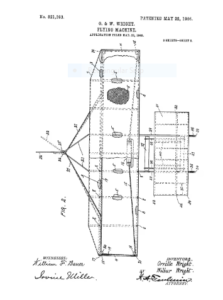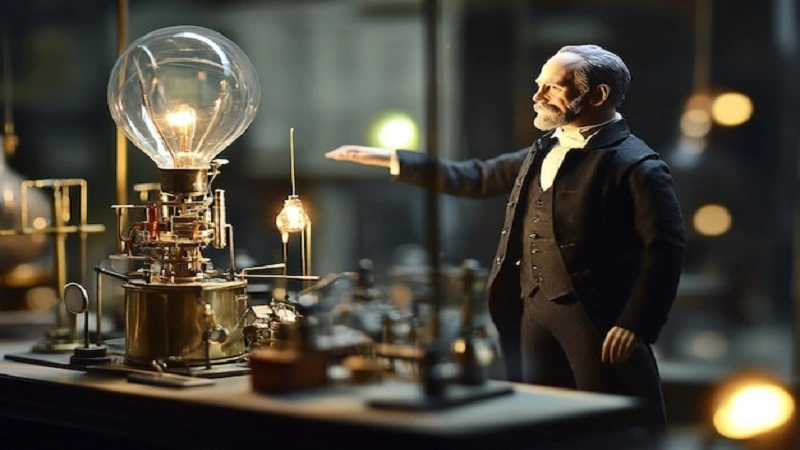Inventions are milestones that mark human progress and change. From the wheel to space exploration, these breakthroughs have shaped societies and transformed lives. This article explores the ten most important inventions and their impacts on the world.
1. The Wheel: A Milestone in Human Progress
The invention of the wheel stands as one of humanity’s greatest achievements. It revolutionized transportation and mechanization, influencing countless aspects of daily life.
The Invention of the Wheel
The wheel was invented around 3500 B.C. in Mesopotamia. Initially used for pottery, it soon became crucial for transportation. Prior to the wheel, moving heavy loads was laborious and slow. The wheel made travel and trade more efficient, laying the groundwork for modern transportation.
The Wheel’s Impact on Society
The wheel revolutionized transportation by enabling the creation of carts, chariots, and wagons. These innovations made it possible to transport goods and people over long distances more efficiently. Additionally, the wheel became a key component in machinery, enhancing agricultural and industrial productivity. Its design remains central to modern transportation, proving its lasting importance.
The Wheel in Modern Applications
Today, the wheel is ubiquitous. It powers vehicles from bicycles to airplanes and remains fundamental in various machines and technologies. The wheel’s design has stood the test of time, illustrating its enduring impact on human progress.
2. The Printing Press: The Birth of Mass Communication
Johannes Gutenberg’s invention of the printing press in 1440 revolutionized communication by making printed materials widely accessible. Before this, books were copied by hand, a slow and costly process.
How the Printing Press Transformed Society
The printing press democratized knowledge by making books more affordable and accessible. This innovation led to a surge in literacy and played a crucial role in the Renaissance and the Reformation. It allowed ideas and knowledge to spread rapidly, transforming education and communication.
The Spread of Knowledge and Information
The printing press enabled the mass production of books, newspapers, and pamphlets. This facilitated the rapid spread of information across Europe and eventually the world. The press’s impact on the dissemination of knowledge is evident in today’s mass media and publishing industries.
The Printing Press and Modern Media
The legacy of the printing press continues in modern media. Newspapers, magazines, and books are all products of this invention. The printing press laid the foundation for mass communication and the free flow of information.
3. Electricity: Powering the Modern World
Electricity is a cornerstone of modern life, powering homes, industries, and cities. Its discovery and harnessing have transformed society.

The Discovery and Harnessing of Electricity
Electricity was discovered through the work of scientists like Benjamin Franklin, Michael Faraday, and Thomas Edison. Edison’s invention of the practical light bulb in 1879 made electricity usable for everyday purposes.
The Impact of Electricity on Society
Electricity revolutionized daily life by powering lighting, heating, cooling systems, and appliances. It enabled cities to grow and thrive, facilitating the development of new industries and improving living standards. The advent of electrical grids allowed for more extensive and reliable access to power.
Modern Applications of Electricity
Today, electricity is essential for nearly every aspect of life. It powers devices such as smartphones, computers, and electric vehicles. Advances in renewable energy sources, like solar and wind power, rely on electricity, highlighting its central role in modern technology.
4. The Internet: Connecting the World
The internet is one of the most transformative inventions of the 20th century. It has changed communication, commerce, and entertainment, connecting billions globally.
The Birth of the Internet
The internet began as a U.S. Department of Defense project in the 1960s. It evolved into a global network accessible to the public with Tim Berners-Lee’s invention of the World Wide Web in 1989.
The Internet’s Impact on Society
The internet has revolutionized how people communicate, access information, and conduct business. Social media, e-commerce, and online education are just a few examples of its impact. The internet has transformed daily life by making information and communication faster and more accessible.
The Future of the Internet
The internet continues to evolve with advancements like artificial intelligence and blockchain technology. These innovations are shaping the future of online interactions and expanding the internet’s potential.
5. The Telephone: Revolutionizing Communication
The telephone, invented by Alexander Graham Bell in 1876, revolutionized communication by allowing real-time conversation over long distances.
How the Telephone Changed Society
The telephone made communication faster and more efficient. It allowed businesses to operate more effectively and kept families connected, regardless of distance. The invention also paved the way for mobile phones and other communication technologies.
The Telephone’s Legacy in Modern Communication
Today’s smartphones have largely replaced traditional telephones, but the basic concept remains. Smartphones combine voice communication with internet access, making them essential in modern life. The telephone’s impact on communication is still significant.
6. The Automobile: Transforming Transportation
The automobile changed personal transportation, making travel faster and more convenient. It significantly influenced urban development and industry.
The Evolution of the Automobile
Karl Benz’s invention of the first practical automobile in 1885 marked the beginning of the automotive industry. Henry Ford’s introduction of the assembly line made cars affordable and accessible to the masses.
The Automobile’s Impact on Society
The automobile revolutionized travel, making it easier to cover long distances. It led to the growth of new industries, such as car manufacturing and road construction. The invention also influenced urban planning and contributed to the global economy.
The Future of Automobiles
The automobile industry is undergoing changes with the rise of electric vehicles and autonomous driving technology. These innovations are transforming transportation and addressing environmental concerns.
7. The Airplane: Revolutionizing Global Travel
The airplane made it possible to travel across continents in hours, revolutionizing global travel, trade, and communication.

The Birth of Aviation
The Wright brothers’ successful flight in 1903 marked the beginning of aviation. Since then, the industry has evolved, leading to milestones such as lunar landings and space stations.
The Airplane’s Impact on Society
Airplanes have connected people globally, facilitating international travel and trade. They have also impacted global tourism and international relations. The invention has made the world more accessible and interconnected.
The Future of Aviation
The future of aviation includes advancements like electric planes and supersonic travel. These developments aim to make air travel faster, more efficient, and environmentally friendly.
8. The Computer: Revolutionizing Technology
The computer has transformed technology and daily life, impacting work, education, and entertainment.
The Evolution of Computers
Early computers were large and expensive, capable of basic calculations. Today’s computers are compact, powerful, and affordable, integrated into various devices.
The Impact of Computers on Society
Computers have revolutionized work, learning, and communication. They have enabled new technologies and innovations. The computer’s role in modern society is pivotal, influencing nearly every aspect of life.
The Future of Computing
Computing technology continues to advance, with innovations like quantum computing and machine learning. These developments have the potential to solve complex problems and revolutionize industries.
9. The Camera: Capturing Moments in Time
The camera has impacted art, culture, and communication by allowing people to capture and preserve moments.
The Evolution of Photography
Early cameras were bulky and required long exposure times. Modern cameras, including those in smartphones, are more accessible and user-friendly.
The Camera’s Impact on Society
Cameras have changed how people document their lives and have played a crucial role in journalism. They have made photography more accessible and have influenced how we capture and share images.
The Future of Photography
Advancements in digital technology, such as virtual and augmented reality, are shaping the future of photography. These innovations offer new ways to capture and experience images.
10. Space Exploration: Expanding Our Horizons
Space exploration represents humanity’s ambition to understand the universe and our place in it.

Space exploration began with the launch of Sputnik 1 in 1957. Milestones include human spaceflight, lunar landings, and space stations.
The Impact of Space Exploration on Society
Space exploration has led to scientific discoveries and technological advancements. It has inspired people worldwide and contributed to technology and innovation in various fields.
The Future of Space Exploration
Future space exploration includes missions to Mars and beyond. Innovations such as reusable rockets and space tourism are expanding possibilities in space travel.
Table of Inventions and Their Impacts
| Invention | Description | Impact on Society |
|---|---|---|
| The Wheel | Invented around 3500 B.C. in Mesopotamia. | Revolutionized transportation and mechanization. Essential for carts, vehicles, and machinery. |
| The Printing Press | Invented by Johannes Gutenberg in 1440. | Made books affordable and accessible. Revolutionized communication and education. |
| Electricity | Harnessed in the 19th century by scientists like Thomas Edison. | Powers homes and industries. Enabled modern conveniences and technological advancements. |
| The Internet | Evolved from a U.S. Department of Defense project in the 1960s. | Transformed communication, commerce, and entertainment. Connects billions globally. |
| The Telephone | Invented by Alexander Graham Bell in 1876. | Revolutionized real-time communication. Led to modern telephony and smartphones. |
| The Automobile | Invented by Karl Benz in 1885 and popularized by Henry Ford’s assembly line. | Transformed personal transportation and urban development. Influenced industries and economies. |
| The Airplane | Successfully flown by the Wright brothers in 1903. | Revolutionized global travel and trade. Connected continents and facilitated international relations. |
| The Computer | Evolved from early mechanical devices to modern digital systems. | Revolutionized work, education, and entertainment. Enabled new technologies and innovations. |
| The Camera | Evolved from early bulky devices to modern digital and smartphone cameras. | Changed how moments are captured and documented. Influenced art, journalism, and personal memories. |
| Space Exploration | Began with the launch of Sputnik 1 in 1957. | Expanded understanding of the universe. Led to technological advancements and inspired global curiosity. |
FAQs
1. What is the most important invention ever made?
The most important invention is subjective. However, inventions like the wheel, printing press, and electricity are often cited due to their transformative impact.
2. How did the wheel impact transportation?
The wheel revolutionized transportation by enabling efficient movement of goods and people. It was crucial for the development of carts, chariots, and modern vehicles.
3. Who invented the printing press and why is it significant?
Johannes Gutenberg invented the printing press around 1440. It made mass production of books possible, revolutionizing access to knowledge and information.
4. What role does electricity play in modern life?
Electricity powers homes, industries, and devices. It is essential for lighting, heating, cooling, and powering modern technology.
5. How has the internet changed communication?
The internet has revolutionized communication by enabling instant global connections. It has transformed social interactions, business, and information sharing.
6. What impact did the telephone have on communication?
The telephone allowed real-time conversation over long distances, revolutionizing how people communicate and paving the way for modern telecommunication.
7. How did the automobile change society?
The automobile made personal transportation faster and more accessible. It influenced urban development, industry, and economic growth.
8. What is the significance of the airplane?
The airplane revolutionized travel by connecting continents. It facilitated global trade, tourism, and international relations.
9. How have computers impacted daily life?
Computers have transformed work, education, and entertainment. They are central to modern technology and have enabled countless innovations.
10. What role does the camera play in today’s world?
The camera captures and preserves moments. It influences art, journalism, and personal documentation. Modern smartphones have made photography accessible to all.
Conclusion
Inventions have significantly shaped human history and progress. From the wheel to space exploration, these breakthroughs have transformed societies and improved lives. Each invention represents a leap in human ingenuity and has contributed to the world’s development. Understanding their impact helps appreciate our achievements and inspires future innovations.
